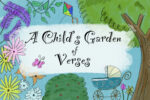American poet and LGBTQ activist Andrea Gibson writes, publishes and performs poems on topics including gender, sexuality, love and politics. She has participated in various spoken word poetry contests, such as the National Poetry Slam and Individual World Poetry Slam, and was the first to win the Women of the World Poetry Slam in Detroit, Michigan, in 2008.
In 2003, Gibson recorded her first spoken word poetry album, “Bullets and Windchimes.” As the years went by, she recorded more albums and has written a handful of poetry collections, her most recent being “Lord of the Butterflies.”
She switched it up earlier this year, however, when she wrote a pocketbook of poetry, “Take Me With You,” which can easily fit in your bag and tag along wherever you go. Why would you take a poetry book with you? Well, for starters, you probably enjoy poetry, but in particular, Gibson’s book will remind you of your battles, strengths and views and is ready to help you with the three categories the book is divided into.
On Love
In the first section of “Take Me With You,” Gibson tells short tales of her own experiences with love, from being in love with a woman to dealing with heartbreak. She explains what love can feel like and how it can make you happy by sharing poems that express her own happiness. She writes, “She makes me feel like I could win the lottery with a parking ticket.”
When you’re carrying this book in your bag and begin to feel like you’ll never find love, you’ll be reminded, once you start reading, that you will find it when the time is right. Even Gibson waited for love, as one of her excerpts reads, “My heart is still a letter jacket I am waiting to give to someone sweet.”
Toward the end of the chapter, you’ll probably relate in other ways to Gibson’s words, such as in the way she feels about giving everything to the one she loves. Haven’t you felt this way? You want to be there for that person, and the chapter concludes with a beautiful poem summing that feeling up. “Before I die, I want to be somebody’s favorite hiding place,” she writes, “the place they can put everything they know they need to survive, every secret, every solitude, every nervous prayer and be absolutely certain I will keep it safe. I will keep it safe.”
On the World
Gibson incorporates a variety of her views in this section, some that you may or may not agree with. Regardless, I’m sure you’ll find power in her words, and you’ll be trying to conceal your joy that she published these poems for the world to see, just like she gets up on stage and speaks the truth for audiences all over the world to hear.
In an exclusive with Interview Magazine, the poet gave her opinions on the taboos of topics involving sexuality and mental illness: “The idea that there’s just a closet around love or sexuality is sort of hilarious,” Gibson said. “I think we’re also that way with grief and panic and anxiety and depression, and I think we also closet our bliss. We’re culturally expected to taper it all down.” She says that expressing these subjects and their stigmas is the theme of her spoken word performances, and you can see it in the poems in this chapter as well.
A handful of poems you’ll read here will focus on sexuality, and Gibson acknowledges how, due to the controversy of the LGBTQ community, love has become a “political thing.” In other excerpts, she goes on to describe the hatred gays experience, such as being bullied in school and shunned by family. At the end of one poem, she writes, “Half of us already dead to our families before we die. Half of us still on our knees trying to crawl into the family photo.”
Unfortunately, some people can relate to these experiences, and by Gibson writing about them, readers can know that they are not alone in any of it. Heck, maybe her words will one day get people to realize how mad the world really is. Isn’t that the ultimate goal, to change minds? Hopefully her poems will do just that, especially because she also writes about the other realities of the world in this chapter, such as how people treat homeless vets and how social media affects lives.
On Becoming
Gibson fills the last chapter of “Take Me with You” with more poems that speak directly to the reader, encouraging them to find themselves and continue to learn and grow. Of course, not all of the excerpts are aimed at the reader, but those that are will invigorate them.
Mental health is repeatedly mentioned, as it is an important factor in life; the words that bring this topic to the surface are subtle but mighty. “You are not weak just because your heart feels so heavy,” Gibson writes. She also references her experiences with panic attacks, and I’m sure many readers can relate to the feeling.
The poet continues to write about “becoming,” finding yourself while continuously living, and in one poem that will surely give you a new perspective, Gibson shines a light on forgiveness. “The hardest people in the world to forgive are the people we once were,” she writes. “The people we are trying desperately to not stir into the recipe of who we are now.” The message of these lines is incredibly eye opening, as you’ll look back at who you once were and who you are now, hopefully, now understanding that those two people are different.
The last takeaway this chapter and whole book gives you is the misunderstanding and judgment people still have of others, many of whom struggle with mental illness. Two poems that face each other back to back in the book evidently hold this message. “Some people will never understand the kind of superpower it takes for some people to just walk outside,” Gibson writes. She then adds, “Why isn’t it okay to say there are things we have not survived?”
If you’re screaming, “yes, yes, yes!” right now, then you better go get yourself a copy of Gibson’s “Take Me With You” and carry it with you wherever you go. You’ll relate to her words of love, life and change and remember to find yourself and be yourself no matter who throws stones at you. You might even be inspired to take action and change lives like this poet does.

















